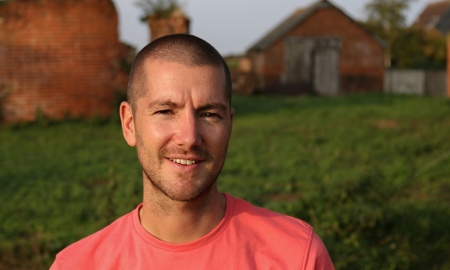As Will Pooley, the British nurse who is returning to Sierra Leone after surviving the Ebola virus he contracted there, busies himself answering repeated questions regarding his decision, others are beginning to ask how much even the ‘experts’ actually know about the disease.

Health authorities in Texas seem baffled that two nurses who cared for Thomas Eric Duncan, the 42-year-old who died there last week after contracting Ebola in Liberia, have themselves become infected. Both apparently followed hospital protocol, albeit Mr Duncan was not diagnosed as quickly as officials at the hospital admit they should have. Yet the lives of two young women are now in the balance.
One of the women inadvisably boarded an internal flight while feeling ‘feverish’. So US authorities are now in a panic to trace the 130-odd passengers who shared the plane. And all while the rest of us are being told how infinitely small the risk of infection is.
On the one hand, we are informed that Ebola can only be spread through direct contact with bodily fluids, which presumably would then have to infiltrate the bodily fluids of someone else. Yet on the other hand over a hundred passengers are being asked to submit to testing, most of whom probably didn’t come into contact with anyone’s bodily fluids if they are anything like me.
During a recent correspondence over an entirely unrelated matter, I briefly mentioned in passing that I was uneasy about what we are being told about Ebola, and was told in no uncertain terms not to become hysterical based on media hype designed to sell newspapers (my correspondent is unaware of my job!). He advised me to “read up” about Ebola and stop worrying. But my view is that if we educate ourselves only by reading, we can never know more than the ‘educator’ knows (or wishes to impart) and knowledge could not advance.
What I see is the same people telling me Ebola does not, for example, thrive on non-organic surfaces sending in Hazmat teams to decontaminate the steps and walls of a nurses apartment abandoned 48 hours previously. What I see is at least two out of 77 health professionals who, we must assume, have taken more precautions than the other people in the life of the poor soul who died in Texas or you and I might, nevertheless contracting the disease and nobody knows how. Meanwhile Mr Duncan’s pals could be drinking at a bar near you or dropping off their kids at your kids’ school.
I remember once seeing a great extreme slow motion shot of a simple sneeze and how far and wide the droplets of ‘water’ we don’t even see with the naked eye manage to spread. On a brisk winter morning on my walk to the bus stop, the visible vapour emanating from the mouths and noses of my fellow commuters who are simply breathing is . . . guess what? . . . . water droplets! If this were not so, there would be nothing to see. They are no less present in summer; just less visible. So why do I have to believe any virus is not airborne just because it’s what I read? There is moisture in air, which equals water droplets, as far as I am concerned.
I’m not a total conspiracy theorist, but given the potential knock-on social and economic effects of my government conceding the possibility that Ebola can be contracted with greater ease than is being suggested, I’m not shocked to be told everything is fine by politicians notable by their absence from where Ebola is.
As for media-driven hysteria – I work in news media, so I guess that puts me at the helm. We are more than capable of hyperbole when it suits, but if there is a serious message to get out there, we are all you’ve got. I’ve been monitoring the Ebola situation in West Africa since around Christmas and wrote about it first being a global concern and subsequently under control as far back as the spring. More recently, outbreaks of Marburg in East Africa and Dengue in China have understandably failed to get much attention. America’s Centers for Disease Control and the World Health Organization have no newspapers to sell and all I or most other journalists have added to the bulletins they publish is a style of delivery.
Many reading this will, no doubt, have total confidence in the official line. But I have been around long enough to have witnessed complete about-turns on many health-related issues. I remember the “go to work on an egg” campaigns in the sixties, which contended that the humble hen’s egg was the perfect food to eat boiled every day – two if possible. By the eighties, eggs were akin to a cholesterol grenade, and more than two per week constituted a death sentence. Subsequently, relatively benign egg cholesterol was deemed not so bad after all – who knows what the current thinking is; I stopped listening long ago.
I also remember AIDS being no real threat to heterosexual men who didn’t have African destinations on their holiday agenda. We know now how close to the bulls-eye the so-called experts were on that one! Even water, formerly promoted as the elixir of life – though, strangely, only if bought in bottles – has had some bad press of late.
So, in case you haven’t guessed, I remain a sceptic. If any of my friends needs picking up from the airport after a trip to Sierra Leone, Guinea, Liberia et al. I’ll pay for their cab and we’ll chat over Skype, but being in the same room will be out of the question until the Ebola scare is over.










